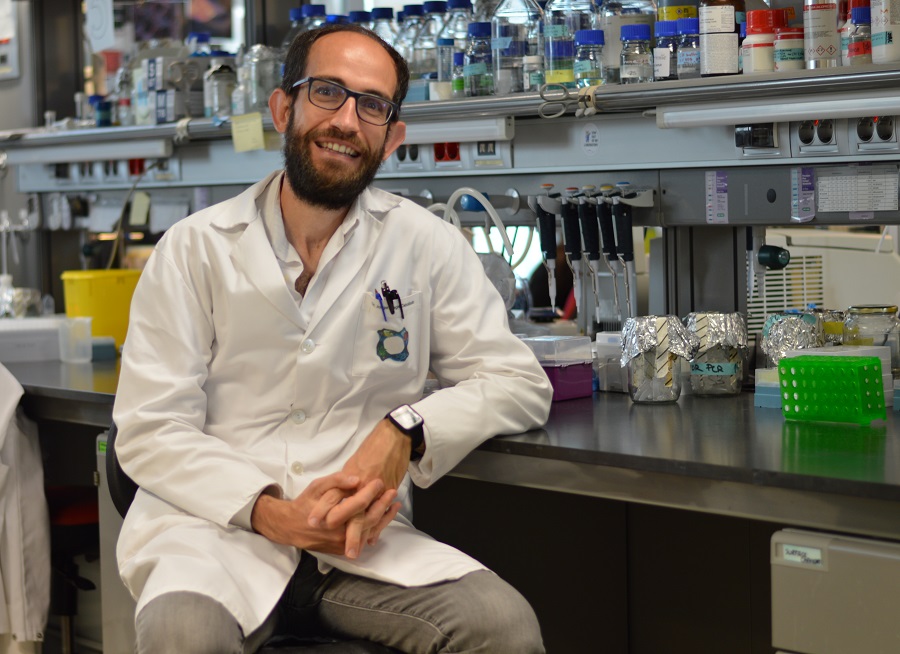Dr Jorge Alegre, named member of the Academia Joven de España
The principal aim of the AJE, the Spanish Young Academy, is to represent and give a voice to young scientists
The CNIC researcher, Dr Jorge Alegre Cebollada has been voted one of the ten new members of the Academia Joven de España, a Spanish organization established as a scientific public corporation whose main aim is to represent young scientists and give them greater visibility. This organisation is linked to the Global Young Academy and the Instituto de España.
Dr Alegre received his PhD in Biochemistry from the Complutense University of Madrid, and has worked in Professor Julio Fernández's laboratory at the University of Columbia (New York, USA), where pioneering developments were made in individual molecular techniques using atomic force microscopy to examine the mechanical architecture of proteins. During his period in New York, Dr Alegre led several research projects looking into how the elasticity of proteins may be regulated by post-translational modification. His work received the support of various foundations and from the NIH with a K99/R00 "Pathway to Independence" grant.
Dr Alegre joined the CNIC in 2014. Among other awards, he has won the Spanish Biophysical Society SBE-33 prize "For his contributions in the role of the mechanical forces in biological processes and protein dynamics using single molecule techniques and atomic force microscopy." Recognition of his career came in 2015, with a Ramón y Cajal contract, the highest distinction awarded by the Spanish Government to researchers in the first stages of their professional career. In 2018, he was selected as a member of the IUPAC periodic table of younger chemists.
In 2021, Dr Alegre's work garnered further recognition when he won the Biophysical Review's Michèle Auger Award
He currently leads the CNIC Molecular Mechanics of the Cardiovascular System research group that investigates how mechanical forces determine muscle function at molecular, cellular, tissue and organism levels.
In 2020, the project “ProtMechanics-Live: Uncovering Protein Mechanics in Physiology and Disease”, led by Dr Alegre, was selected for one of the European Commission's ERC-consolidator grants. The project will receive 2 million euros over the next five years.
During the selection process for the Academia Joven de España, he participated in an international independent committee composed of prestigious researchers in different areas of knowledge. Of the 102 candidates who aspired to membership of the academy, fewer than ten percent were selected in what is a highly competitive selection process, based on the excellence of each candidate's professional career. In addition to academic merit, the academy evaluated other factors such as the diversity of candidates and the multidisciplinary nature of their work.
The average age of the ten new academy members is 38, and five of them are women. Their profiles cover diverse fields of knowledge including archaeology, philosophy, business administration, physics, chemistry, nutrition, materials science, microbiology, genetics and neuroscience. Among them, there is one Spanish researcher who is currently working abroad. One of the distinguishing characteristics of the Academia Joven de España is precisely that it allows young Spanish researchers who work abroad to become full members. This new measure was introduced in order to foster collaboration among young Spanish researchers, and to connect those of them who are working outside the country with academic institutions in Spain.











